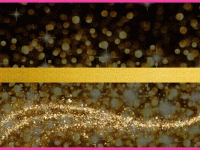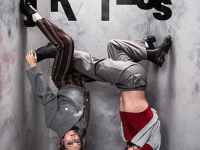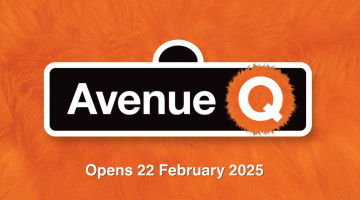 Queenie van de Zandt is a highly experienced performer in the Australian Theatre industry, just a glance over her bio will tell you that she has played major roles in many musicals as well as plays, cabarets and comedy festivals. Now Queenie also teaches, passing her extensive knowledge, industry connections and a few personal anecdotes to up and coming performers.
Queenie van de Zandt is a highly experienced performer in the Australian Theatre industry, just a glance over her bio will tell you that she has played major roles in many musicals as well as plays, cabarets and comedy festivals. Now Queenie also teaches, passing her extensive knowledge, industry connections and a few personal anecdotes to up and coming performers.
You’ve done so much work in the industry, what made you start teaching and running workshops?
It came from two things, 1 – I moved to Brisbane and there is not as much work up there so I began to teach and while I was there I also found that there was a real gap in the market in terms of teachers who had my kind of experience in music theatre. There were very few people who were working and currently working in the industry. When I was up there, there were very few people who did what I did. Secondly, I started out in Canberra and Brisbane is a little of the same thing and when you come from smaller places it’s this thing that’s a bit unknowable. It came out of the idea that when I was starting I had no idea, I did everything wrong that you could do wrong and there are so many people out there like me who don’t know the ropes and don’t know how to get an audition, how to put together a good audition, how to get an agent. There are so many little things that you can pass on.
What kinds of workshops do you run?
I mainly teach in two areas which is music theatre and cabaret. Within Cabaret I teach people how to put together a cabaret and run lessons on how to put together a cabaret, help them direct them it and things like that. Music theatre is the main one that I do and specifically I teach people how to audition for it. Within that I run courses that are very specific to musicals for example I ran courses around Mary Poppins, making people aware of the need in the musical. Each musical has very specific things and I was able to bring that stuff out and students who worked with me have been cast in Mary Poppins so that’s very exciting. The other one that I am doing at the moment is the Advanced Audition Technique for Musical Theatre, that is a course that’s very new for me because I often teach one off master classes or weekend master classes. What’s unique about this particular course is that there are lots of places that you can go to, to train but very few places will you be in contact with such high profile people all the time. They do it in sports all the time where they bring in high profile, elite sportspeople will go around to schools and teach kids who are up and coming athletes how to do what they do and there’s no one better to teach these things than people who are really successful in their field. My thing was putting together these people who I know with people who are really talented, getting them to meet each other and sometimes that’s the hardest thing.
So what can a prospective student of the Advanced Audition Technique course expect?
It’s an eight week course, which consists of Saturday classes and one Sunday class, we have one full weekend, and private tutorials with myself and the rehearsal pianist who is working on the course. Over those eight weeks they learn all the ins and outs of auditioning, they learn how to choose good material, what sort of parts they’re right for in Music Theatre, they learn how to take a great song for an audition which I have to say is 90% of the audition is finding good material, and taking that and making it into a performance. They learn about what panels are looking for, they get a whole day with a musical director, they get to work with a choreographer, last year they got to work with John O’Connell of Moulin Rouge, Strictly Ballroom and King Kong fame. They also got to work with Nathan Wright, they’ll work with a director on scene work from Music Theatre. What’s different this year is that I’ve included another 4 workshops, they now get to do a workshop with a producer, a high profile performer who has been in the industry for a long time a publicist and a member of the union will come in and tell them about their rights and stuff like that. One of the things that I teach in my course is about being incredibly pro active, you can’t just wait for the phone to ring. My course is about developing people as artists, as creative artists, not just about people sitting around waiting to be cast in a musical. From what I know about past students, they’re going to London, they’re going to study, one of them just got into a three year musical theatre course, one of them is at La Salle in Singapore, they’re cast in musicals, it really has obvious results. To me that’s really exciting it shows how empowered they feel and that’s one of the biggest things, Auditioning is one of the biggest ways to feel unempowered. If you don’t realise what your own capacity is it can be very unempowering and I think this course counteracts that.
I’ve extended another part of the course too, the course used to end with a mock audition, which it does, in week 7 this time, you get to perform the stuff you’ve been working on during the course for a panel of a musical director, director and choreographer, plus this time you get to perform in front of an agent, then you have the possibility of being signed up to that agent. Then in the final week we actually have a big debrief where we actually get to discuss how far you’ve come in the course and then map out your future because you do these courses and then you walk out the door really inspired and then the next day you think ‘what am I going to do now?’ Everyone’s going to write a plan on that last day. That’s a big problem, you have these goals and then think that it’s so big and you may only have half an hour in a busy day and think you can’t do all of that in half an hour but what you can do in half an hour is practice some singing exercises or go on the internet and look at courses or look at how you can get some money together.
You talked about picking the right audition song, how does someone even go about that?
Well, one of the things that I teach in the course is that I believe that there are six components to a good audition song. There are six major components that you can use as a template for every song that you come across. What I find is that people will find a song that they love, like when Wicked came out, everyone wanted to sing ‘Defying Gravity’. I love it, it’s fantastic and I say OK, let’s have a look at it with the template:
1. It is something you relate to and have an affinity for:- Sure, if you love that song, you obviously can relate to it and you have an affinity for it. Done. Tick.
2. The song is unknown and is rarely done:- Straight away, you go, at the moment, you can’t touch Wicked because every man and his dog wants to sing that song, and the panel has heard it a hundred times.
Let’s say for example the song wasn’t known:
3. The song shows off your vocal dynamics and is appropriate to your age and gender, look and type:- For most people who want to sing this song who may be 16 years old or 18 years old they don’t have the gravitas to sing this song, this is a defiant song, this is a song about I’m going to do it anyway, regardless of what anyone else thinks. At 18, it’s a pretty rare person who has that kind of life that they feel like they have to overcome something. Not only that but it is a very rare person who can do justice to that song, you have to have the vocal dynamics for it. Unless you can actually wail those last few notes, you are just going to show them what you can’t do.
4. The song tells an engaging story and it has a journey:- Brilliant, that song does, absolutely massive ticks there for that song and of course, it tells a great story. The reason why you need that is you don’t want to sing a song that doesn’t transport those people out of the audition room. People come to the theatre to listen to stories, to see journeys, to lose ourselves for awhile.
5. The song’s not too long (around 2-3 mins):- Well that’s about a 7 minute song, can’t do that again.
6. It sounds good with piano and voice:- That song, it’s not a great song to do just with piano because it’s an incredibly difficult song for people to play.
So that’s the sort of thing we do in the course and then you get to look at your repertoire and look at new repertoire to pick pieces.
Who can take the course?
We’ve had all sorts of people, which makes it so wonderful. One of the most successful women that I’ve had was in the inaugural course, her name was Helen she’s in her 60’s, done heaps and heaps of amateur theatre, and many people in amateur theatre could be in professional theatre. She did the mock audition and Max Lambert was on the panel, she sang Meadowlark and he said “I’ve seen Patty LuPone, Elaine Paige and Deborah Byrne sing that song and hated it, but you made me cry and I love it”. For her this was such a great moment, it said to her that she was good enough, she came and spoke to me after and whether she goes on to do professional theatre or not it tells her that she is good enough. I’ve had people from WAAPA who are just not getting the roles they want, they have done some ensemble work but are just not at the level they want to be, I’ve had actors who are very successful in acting but would like to move into music theatre, they can sing but aren’t confident about blending the acting and the singing together. Then just a lot of people who are just starting out, that’s probably the majority of people, they’re in their 20’s, who are starting out, sometimes getting auditions, sometimes not getting auditions, they just feel like they can’t quite break into the industry. There has to be a certain standard and there are some criteria but it is not limited to professional work.
The closing date to apply for Queenie’s upcoming Advanced Audition Technique is the 1st April, e-mail info@queenievandezandt.com for more information. As a past student of the course I can highly recommend it I learnt something every minute and developed so much. If you take yourself seriously as a performer and would like some really worthwhile training, you should consider doing this course.
By Alexandra Chambers









